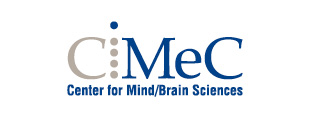Overview | Research directions | Members | Publications | Ongoing Collaborations
Overview
Linguistics aims at understanding the place of language within other human cognitive faculties. Along the way, it tries to answer questions that range from the inner working of individual constructions to broad models of the way language might have evolved, how it is processed in the brain and which of its aspects might be the by-product of biological constraints. We address these issues with a wide range of tools, from theoretical analysis to computer modeling to brain data of sentence processing.
We also offer consultation service for researchers interested in gathering linguistic data or using the local computational facilities to set up linguistic experiments.
Research directions
- The Syntax/Semantics Interface: Nominals and Beyond - Our more theoretical work addresses fundamental issues in the semantics of nominals: how (is)definiteness is expressed even in language that have no definites; how we refer to classes of objects or make generalizations on them; how the “part of” and the “equal to” relations are expressed across languages. At a broader level, we are interested in fostering a fruitful interplay between denotation- and distribution-based semantics.
- Linguistic analysis of artificial models of human language - A second side of our research is concerned with the analysis of the capabilities and representations developed by current machine learning models of language (e.g. LSTMs, Transformer models). One way to do this is to test the extent to which human metalinguistic intuitions are present in computational language models.
- Novel approaches to linguistic data collection - Other ongoing projects target the possibility of using online games to collect validated linguistic data (especially oral data, including data types required by fellow researchers), or the ERP signatures of well- or ill-formed sentence processing from mental rehearsal, using EEG techniques.
Members
Current Staff
- Roberto Zamparelli, Principal Investigator
-
Sia Vosh Sepanta, PhD student
-
Natallia Chaiko, Research fellowship holder
- Luca Ducceschi, Teaching fellow
- Aria Nourbakhsh, guest, research fellow)
- Stefano Bellelli, LMI master student
- Michelangelo Falco, Research fellowship holder
- Rossella Varvara, PhD student
- Matteo Mascelloni, LMI Master student
- Allison Keith, LCT Master student
- Andrea de Varda, LMI student
- Nicola Sartorato, LMI student
Publications
Theoretical linguistics, psycholinguistics:
- Zamparelli, Roberto, (2020), Countability shifts and abstract nouns, in Friederike Moltmann (edited by), Mass and Count in Linguistics, Philosophy, and Cognitive Science, Amsterdam: John Benjamins, 2020, p. 191-224
- Falco, Michelangelo; Zamparelli, Roberto, Partitives and partitivity, in GLOSSA, v. 4, n. 1 (2019), p. 1-49. - DOI: 10.5334/gjgl.642
- Mascelloni, Matteo; Zamparelli, Roberto; Vespignani, Francesco; Gruber, Thomas; Mueller, Jutta L, Distinct neural processes for memorizing form and meaning within sentences, in FRONTIERS IN HUMAN NEUROSCIENCE, v. 13, n. 412 (2019), p. [n.d.]-[n.d.]. - DOI: 10.3389/fnhum.2019.00412
Computational / Methodological
- Brunato, Dominique; Chesi, Cristiano; Dell'Orletta, Felice; Montemagni, Simonetta; Venturi, Giulia; Zamparelli, Roberto, AcCompl-it @ EVALITA2020: Overview of the Acceptability & Complexity Evaluation Task for Italian in Proceedings of the Seventh Evaluation Campaign of Natural Language Processing and Speech Tools for Italian. Final Workshop (EVALITA 2020)
- Chowdhury, Shammur Absar; Zamparelli, Roberto, RNN Simulations of Grammaticality Judgments on Long-distance Dependencies, in Proceedings of the 27th International Conference on Computational Linguistics: COLING, Santa Fa, NM, USA: ICCL, 2018, p. 133-144
For a complete list see Roberto Zamparelli personal page
Ongoing collaborations
-
Cristiano Chesi, IULM, Pavia;
-
Prof. Caroline Heycock, University of Edinburgh;
-
Shammur Chuwdhury, Qatar Computing Research Institute
-
Michelangelo Falco, ZAS, Berlin
-
Prof. Vespignani, University of Padova;
-
Simonetta Montemagni, ILC “A. Zampolli”, CNR.

